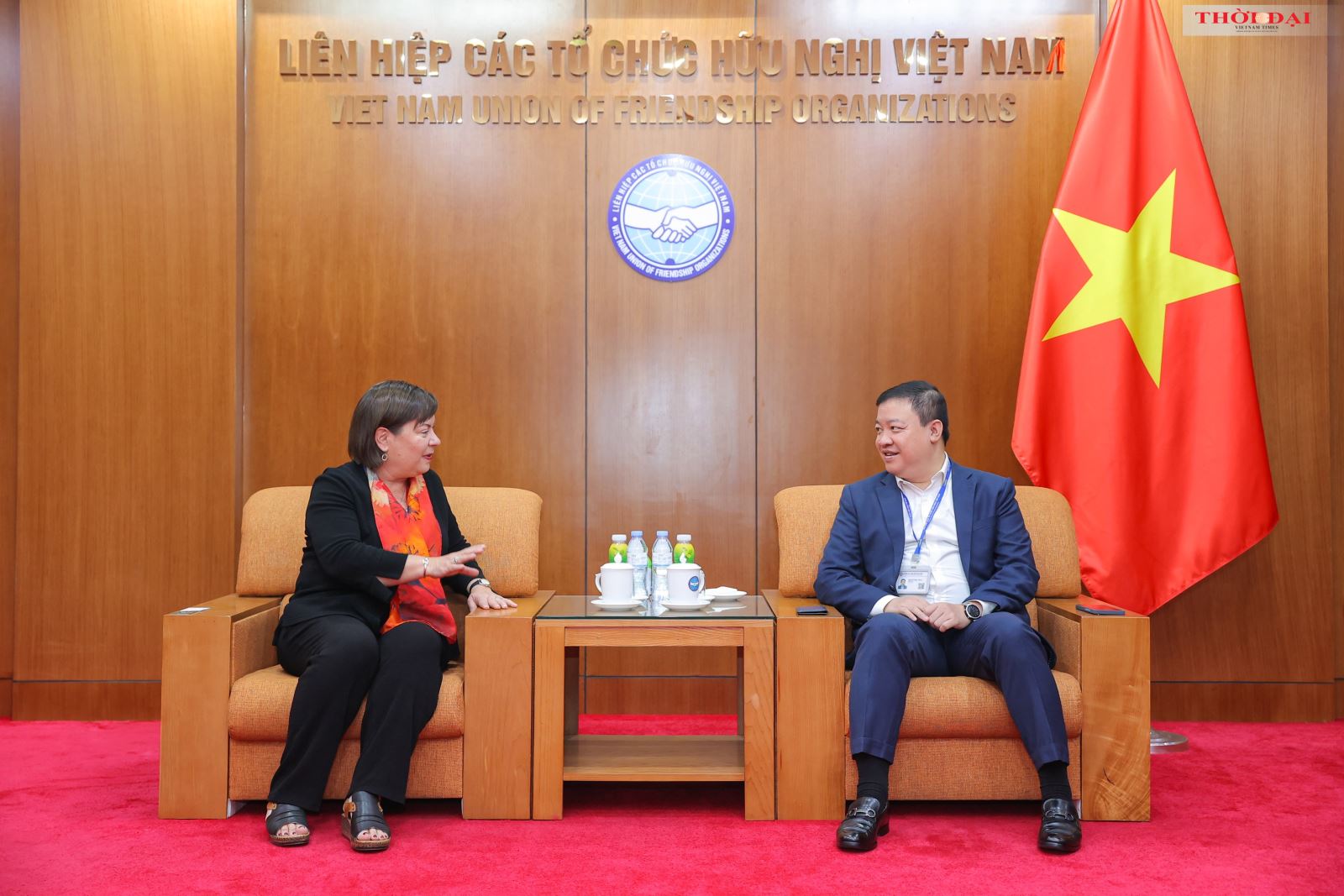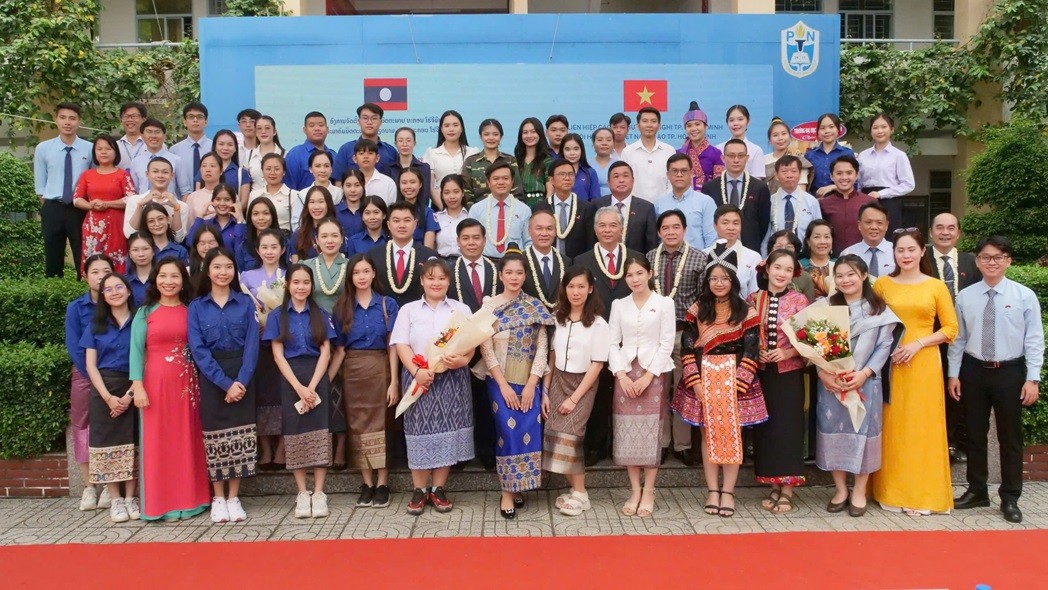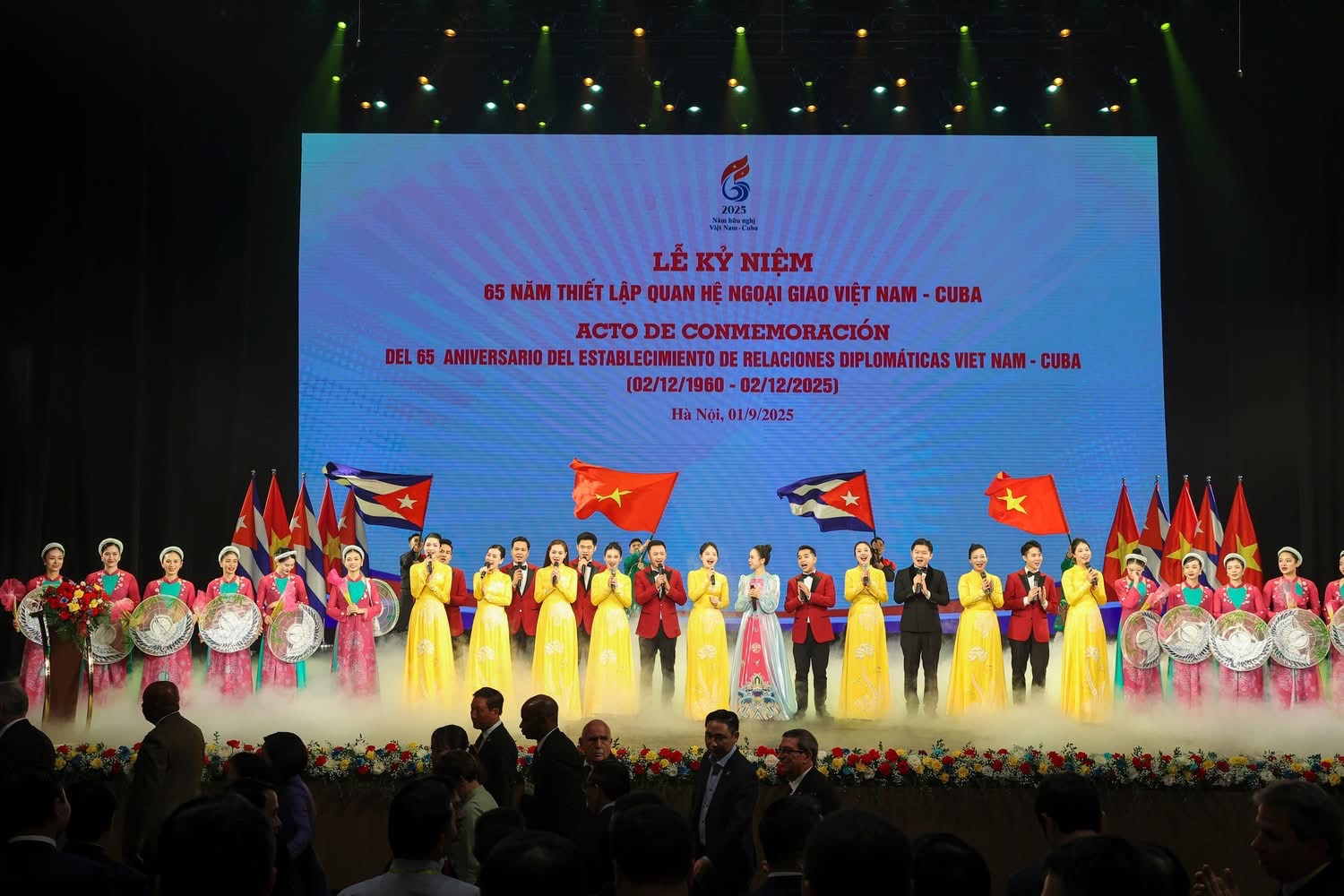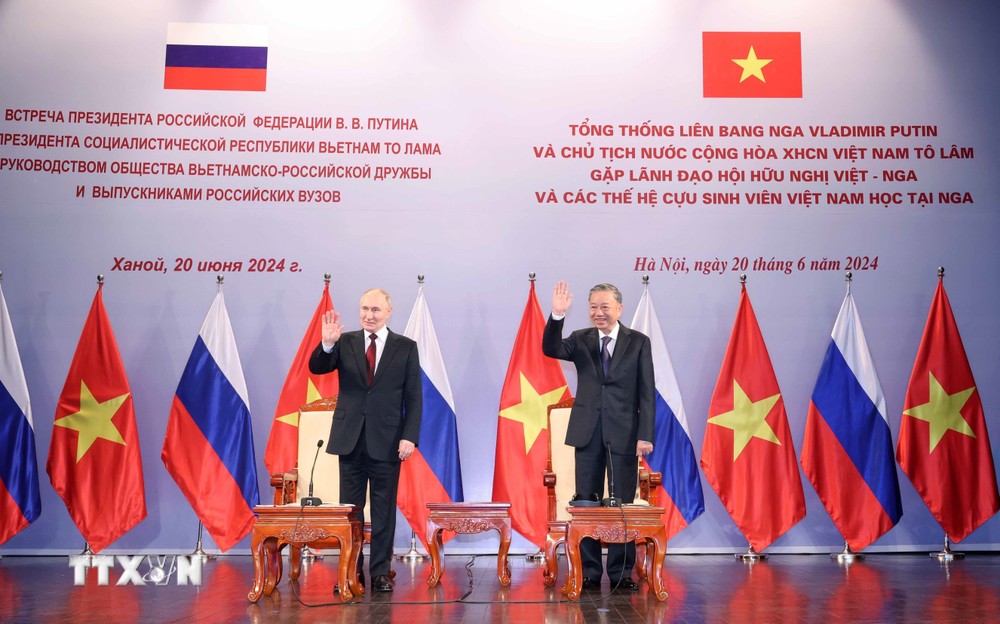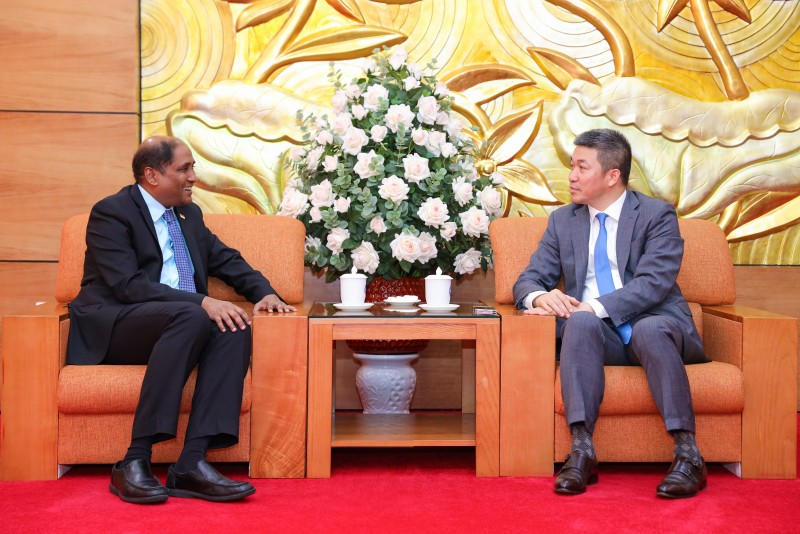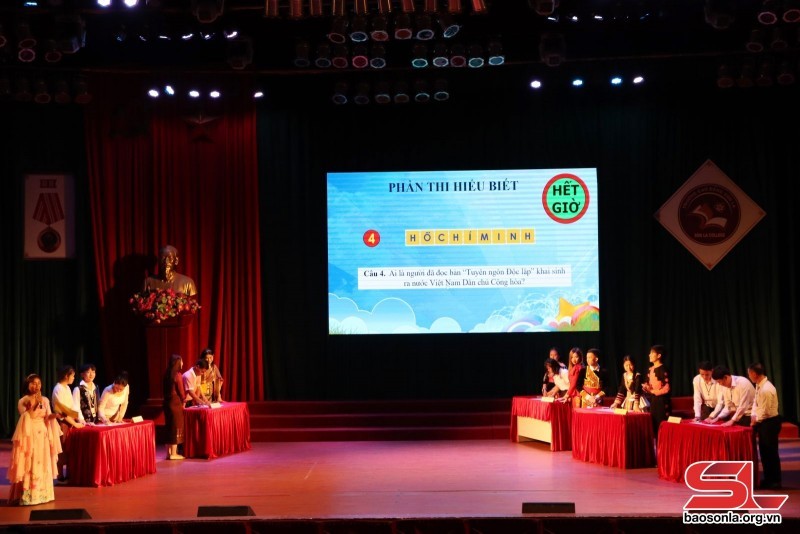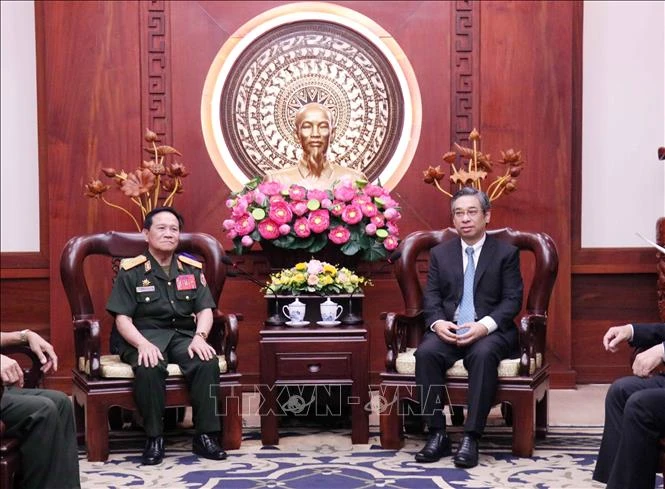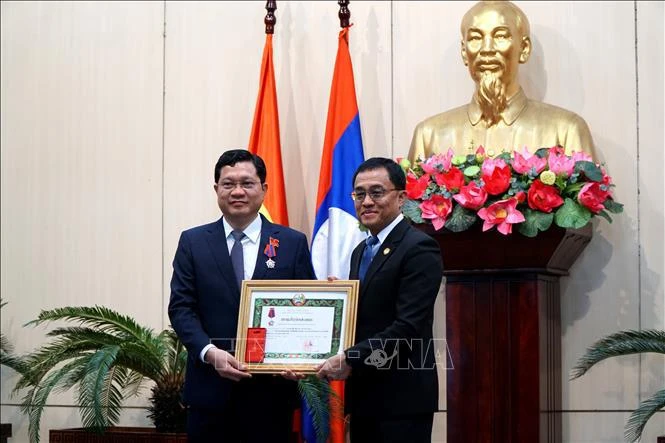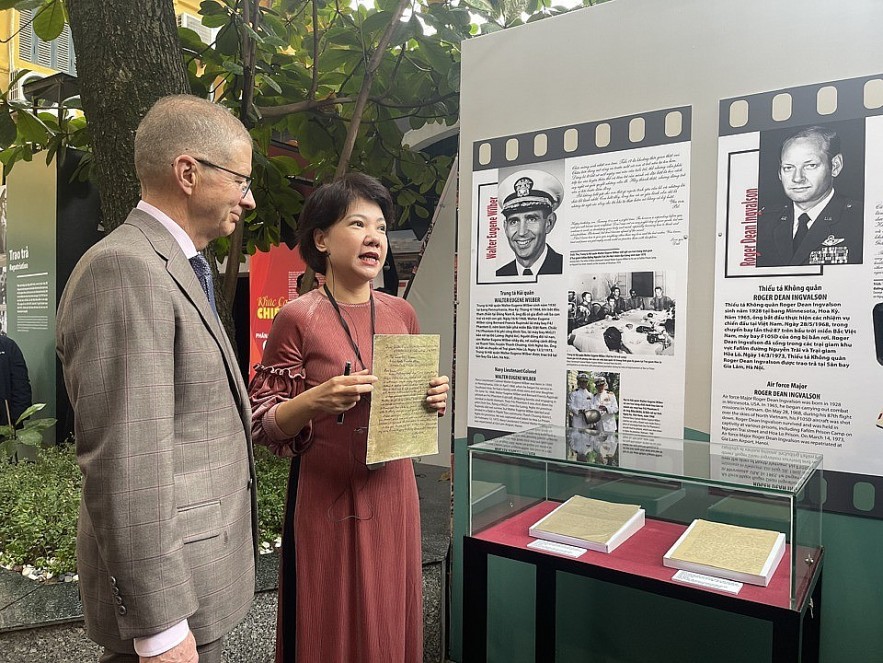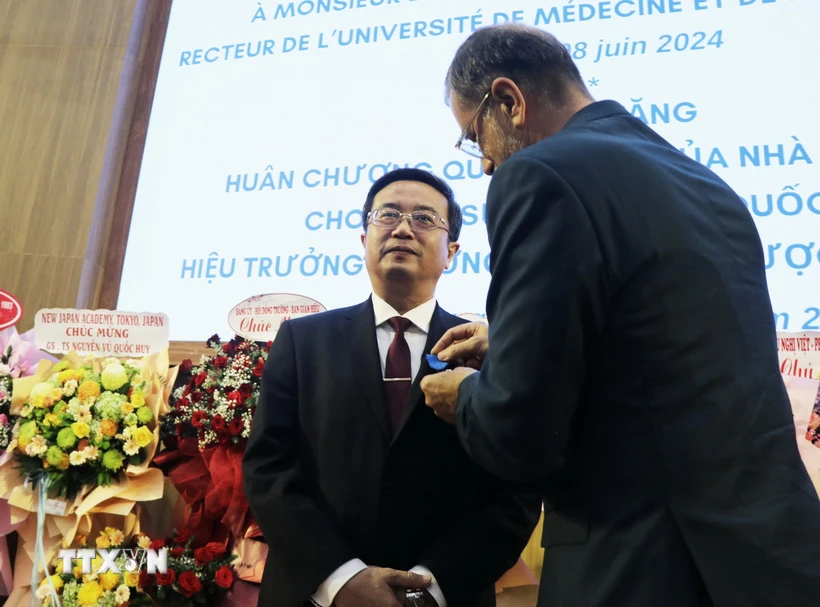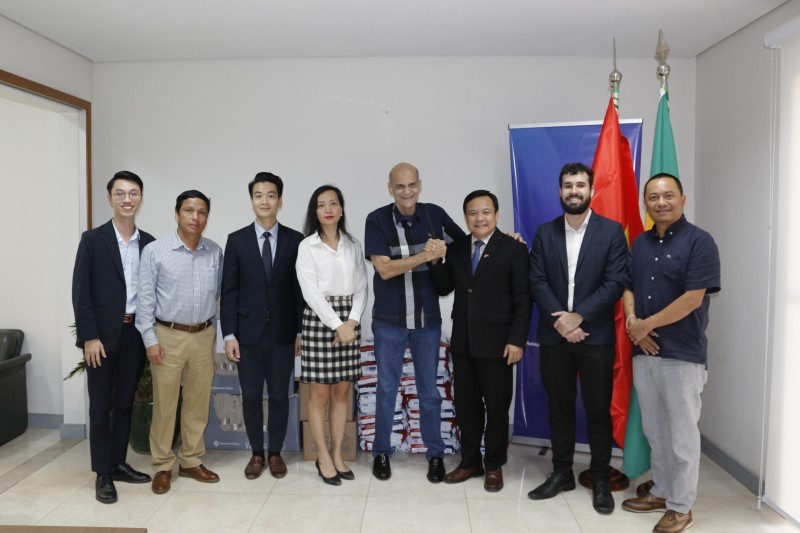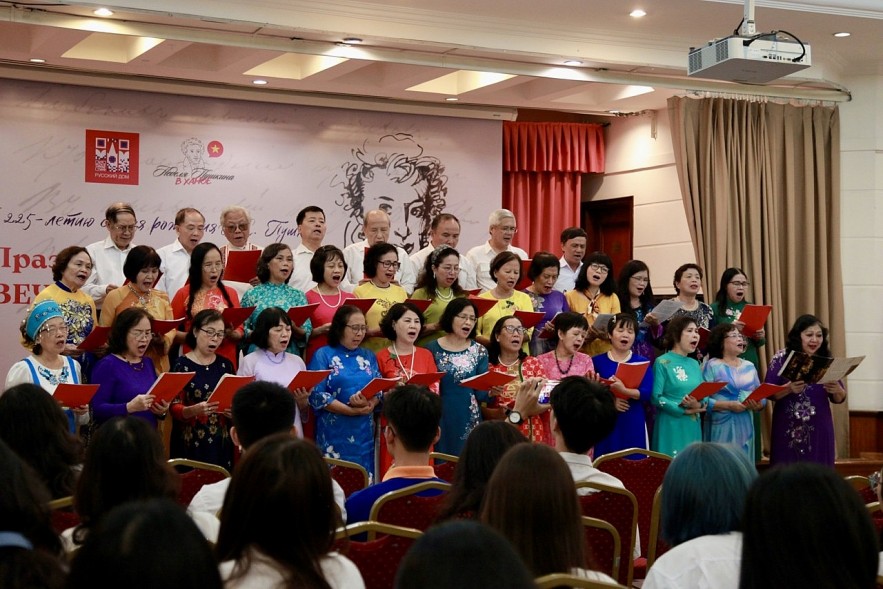 |
| A performance to commemorat the Puskin week in Hanoi. (Photo: Russian Center for Science and Culture in Hanoi) |
Out of sight but not out of mind
Just by looking at the map, one can tell the challenging gap between the peoples of Vietnam and Russia. In Vietnam, the scorching heat sometimes reaches up to 40 degrees Celsius, burning crops and skin. Meanwhile, in Russia, there are long days that one has to walk in the endless whiteness of snow and ice. The cold once reached minus 40 degrees Celsius, which could kill people. Vietnamese people are agile and small while Russians are tall and huge, wearing leather snow boots that young Vietnamese feel uncomfortable to even carry.
Not to mention language, skin color, beliefs, culture, and customs - all very difficult to find any similarities. Those "differences in blood, differences in heart" make the distance even farther than those thousands of miles away. The Vietnamese people have maintained relations with the Russian people for several decades now. That is a very short time compared to the length of a people's diplomatic history. There was not much exchange, cooperation, or ties in the past of the two peoples. The beginning of the relationship was brought about by political circumstances, not by the lives of the people themselves.
However, the spirit of Russians and Vietnamese have been linked through friendship, love, and family. It seems that when Vietnamese people have adoptive mothers, fathers, and sworn brothers of other ethnicities, most of them are Russian. Russia has trained millions of students from all over the world, yet only Vietnamese students are most widely, firmly, and sincerely welcomed by Russian teachers to be their family members.
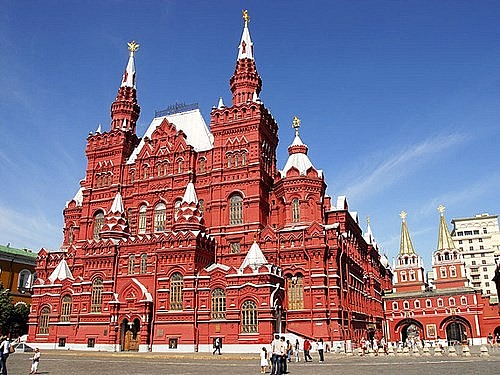 |
| Documentary photo. |
Most Vietnamese who used to live in Russia and become friends with Russian people share the same thought: whenever they hear about Russia or the Soviet Union, a feeling of joy, nostalgia, trust, and affection rises in their hearts. No doubts in their guts. I think it is difficult for Russian leaders to find anywhere in the world the same respect, familiarity, and warmth as when they come to Vietnam, when they talk to Vietnamese people who used to live in Russia.
When Vietnam was in the resistance war against the USA, many countries inside and outside the socialist bloc provided food, weapons, knowledge, and personnel, including the Soviet Union. No regulations or historical documents were declaring it, but perhaps the people, soldiers, and many Vietnamese officials at that time felt very clearly and truthfully that the Soviet Union helped Vietnam not only as a socialist ally.
The Soviet people shared the pain of our loss and rejoiced with Vietnam's victory. From the eyes, confidences, and gestures of each Russian friend, we see that the Russian people, from deep within their subconscious, consider the Vietnamese people to be true brothers. When the war in Vietnam ended, as the new page of history turns, in the minds of each person as well as both nations, there is no trace of the thought that the past mutual assistance is a debt, a bond from the past. Everything is pure and warm from the bottom of the heart.
Previously, Vietnam had a special relationship with the Soviet Union, whose core was Russian, because the two countries were allies in the socialist bloc and both pursued Communist ideals. The way of work, the way of life, the way of thinking were all designed, organized, and operated in the same way. Therefore, it is easy to understand the kindness, sympathy, understanding, and support that the two people have for each other. Now, the Russian people have been building a society based on a completely different model than they did before and completely different from what we are doing.
The spatial and cultural separation becomes even greater. Therefore, in terms of reason, one can say that the "people's spiritual relationship" between the two countries seems no longer significant. However, surprisingly, Vietnamese and Russian brothers still find each other in a unique loving embrace. The obstacles, the differences, the losses of time... and now the harsh challenges of mind can not damage that sentiment. They even embellished the affection between the two nations.
So what makes the people of Vietnam and Russia "out of sight" but not "out of mind"? I think it is the harmony of the soul and spirit of the two peoples.
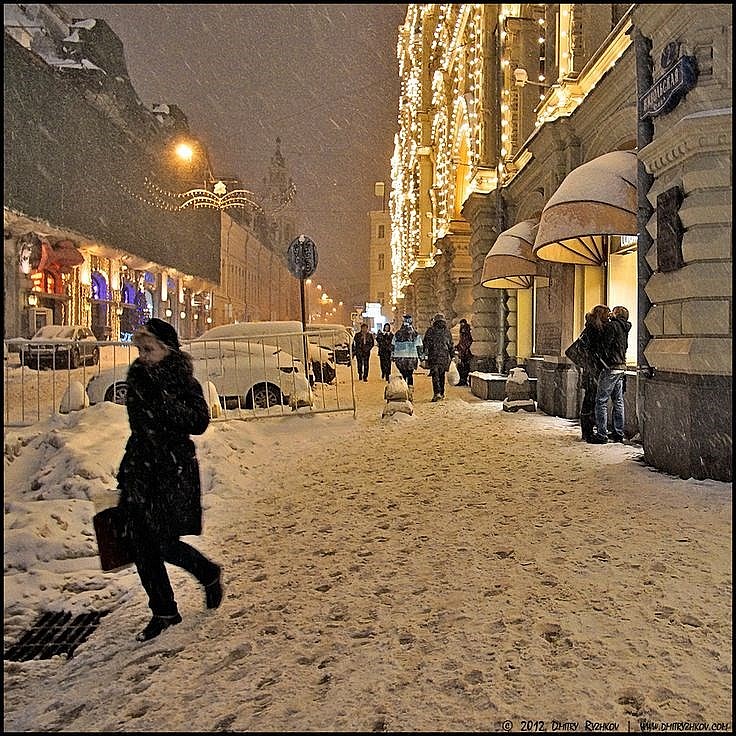 |
| Documentary photo. |
Share a soul and mettle
The first days I came to Russia, I was just out of my teens and listened to Russian folk songs like Kalinka, Ural Rowan Tree... I was deeply moved by its extreme closeness and inspiration. Even though I didn't understand the lyrics, origin, or musical meaning, the sound and melody of those songs left a deep imprint in me as if I had memorized them since I heard the lullabies from my hometown. The ancients of the East once believed that music was the ultimate point, the highest level of the values of truth, goodness, and beauty.
In music there is a harmony of all beauty, both noble and existential; both the eternity and the freshness and colors of life and the universe. To put it more simply, music is the most complete and honest expression of the soul. So when there is "unity in correspondence," despite differences in language, physicality, and everything else, the two peoples still feel very close to each other, making it possible for both sides to "harmonize" with each other.
Based on the same understanding, many people say that when talking about literary influence on Vietnamese people, Chinese literature must come first, then French literature. However, Russian literature has the strongest occupation of Vietnamese readers' souls. In addition to being fascinated by the majesty of this great literature, Vietnamese readers are fascinated by the closeness and strange similarities in Russian literature. Russian literary characters and images seem to differ from Vietnamese only in names... Is it possible that deep down in the elementary, there is no longer any boundary in the "operating mechanism" of the Vietnamese and Russian souls?
During the resistance war to liberate the South and unify the country, I witnessed a talk between my father (General Secretary Le Duan) and some Soviet youth and students. During the exchange, a Russian student stood up and asked him: "General Secretary, do you think Vietnam will win against America?"
My father said: “I realized that in the world there are two peoples who are similar in their heroic spirit and are very good at fighting the enemy. Those are the Russians and the Vietnamese. In the 19th century, when Napoleon won all European battlefields and held the most powerful armies to annex Russia. Faced with the resistance of a heroic nation, Napoleon failed. In feudal Vietnam, the Mongol army conquered from Asia to Europe, spreading terror to all countries they visited. Yet in all three times they invaded Vietnam, they failed miserably. At the beginning of the 20th century, when the German fascists devastated Europe, conquered all the wars, and aspired to conquer the world, they collapsed on Russian soil... Today, imperial America is the number one superpower, that has never tasted defeat. But they are also encountering resistance from a nation with a heroic spirit, Vietnam. The Russians defeated the German fascists, then history must also stand for Vietnam to defeat the USA." And yes, history has given victory to the heroic spirit of Vietnam.
For Vietnamese people, when friends gather together, no matter how much or little they can help each other, the most noble value is to gather with sincerity, equality, and especially without self-interest. Those distant Russian friends have gone through ups and downs; like gold tested by fire, that value has been proven. How precious!
In the hundreds of years of human life, it is difficult to find someone who deeply sympathizes with you, called a soulmate. In the thousands of years of a nation's history, it is even more difficult to find people who are harmonious with the core of soul and compatible in dignity and mettle. Although I do not know the best way to call it, I can see that rare value in viewing Russia-Vietnam relations as "soulmates."
Source: Vietnamtimes

